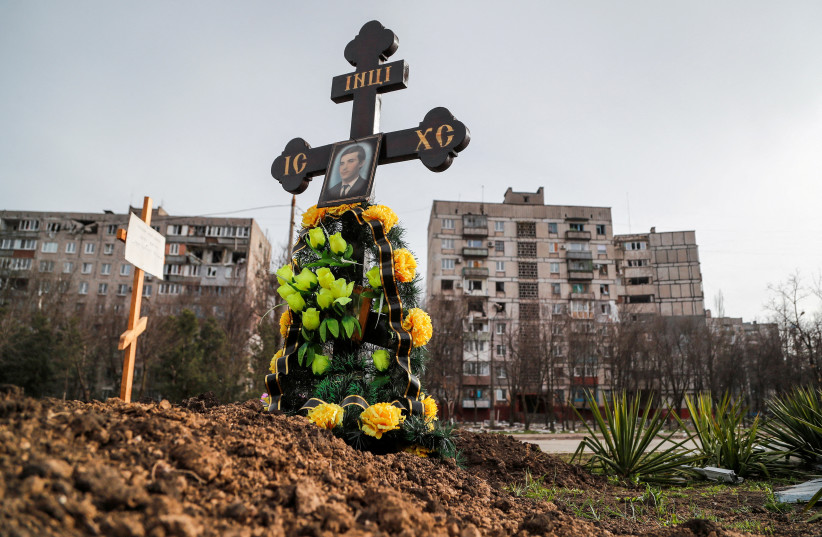The new reality to which the world has woken up to in the past few weeks has highlighted the strategic value of constantly available and relatively cheap energy sources, and the heavy costs of energy dependence. It is not only about the global economic impact and commodity prices that have skyrocketed. There is also the issue of sovereign states’ room for geopolitical maneuver - which has become subject to the availability of energy sources.
In this context, Israel faces an invaluable opportunity to plan its energy future in a way that will both ensure its energy, economic and geopolitical independence, while also considering the long-term environmental needs.
There has rarely been a time in recent history where the topic of global energy security has been of such urgent importance. To overcome Europe’s current crisis, governments across the continent must rethink their approach to energy systems policy and regulation. For the oil and gas industry, whilst no single company can claim to have the solution, there is a significant role for us to play, working with policymakers to support newly-prioritized energy security objectives.
Russia’s invasion of Ukraine, alongside wider economic and geopolitical factors, has created an energy crisis across Europe that will ripple across the globally interconnected energy market. Russia supplies 40% of the EU’s gas and a quarter of its crude oil. The terrible events unfolding in Ukraine make that dependency appear all the more myopic. The entire European energy system assumes Russia will always deliver and that there is no downside to this mutual dependency. European countries are therefore searching for solutions that will enable them to reduce their dependence on Russia.

In the midst of such a dramatic period in the global energy market, Israel has recently begun to enjoy the tremendous advantage of being able to supply its energy needs on its own. This ability must be maintained over time, as part of a wide national concept that takes into account the country's long-term strategic needs. In the global context, we at Energean do not claim to have a unique solution to this crisis. We do however believe that we can make a valuable contribution. At the heart of our ETHOS is a commitment to supporting energy security for the communities that host our operations. Greece and Italy depend heavily on energy imports from Russia. Declining investment in the hydrocarbon sector for both countries has increased this dependency on Russia.
I see a significant role for Energean and others across our sector, in providing the deep technical insight and market knowledge that can help deliver the marginal gains needed to relieve pressure on the European energy supply.
There is no quick fix to achieving national energy independence. A pragmatic approach is required. This approach must balance the acceleration of the energy transition with investment in strong domestic hydrocarbon production and storage – where those resources are available. This will provide the resilience and security to meet the current and projected energy demand of broad and diverse industrial economies.
Domestic production is vital as Russian hydrocarbons cannot be replaced via the tight global LNG and pipeline markets. Whilst European economies are desperately in need of increased oil and gas supply in the short-term, suppliers will be focused on longer-term contracts to de-risk upstream development.
A material enhancement of the Eastern Mediterranean energy market is a key focus for Energean, and our flagship Karish gas project will be transformational in boosting energy supply for the region as it drives sustainable development and energy security both in Israel and the broader region. We look forward to the results from our current drilling campaign.
In the more immediate term, Governments across Europe – particularly those who are heavily reliant on Russian commodity exports – must undertake an urgent review of their imports and question whether the right policies are in place to support energy security. Israel & Egypt have made it clear that domestic supply is vital to their energy security. The UK has announced the first new UCKS Licencing Round in two years.
Today, I believe, a key point that needed to be comprehended globally– is that shaping our energy future isn't a zero-sum game – in which hydrocarbons-based energy and renewable energies compete with one another. Natural gas is the foundation for and catalyst of a more sustainable energy system – as can be seen in other parts of the world where enhanced if intermittent renewable energy is balanced by constantly available and flexible natural gas. This is part of a gradual and orderly process that considers the States' strategic, geopolitical, economic, and environmental needs alike. Natural gas is the safest and most reliable transition energy, on our way to the realization of a zero-emission vision that we are aiming for by 2050.
